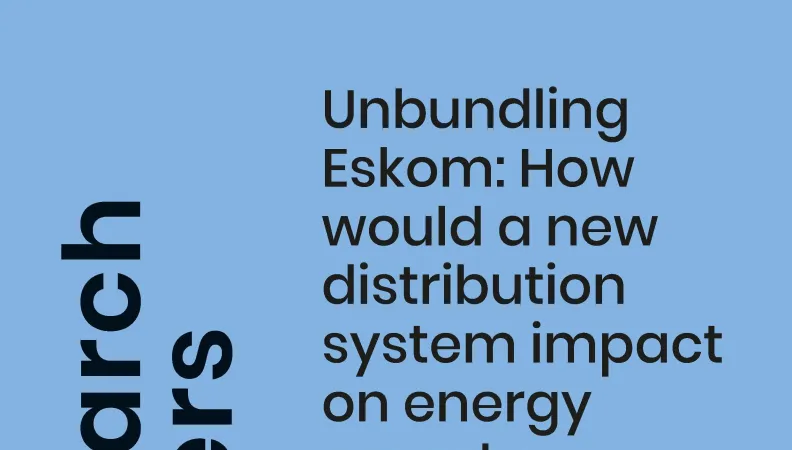Share the page
Unbundling Eskom: How would a new distribution system impact on energy poverty
Published on

South Africa’s electricity generation and transmission are currently dominated by the country’s vertical monopoly power utility, Eskom. Distribution is shared between 165 licenced municipalities and Eskom. The intention to divisionalise or unbundle Eskom will eventually affect the current distribution framework and the tariff structures in place, which in turn, could directly impact energy poverty within the country. Alongside this, South Africa recognises the dire and urgent need to address climate change and to transform into a low-carbon and climate-resilient country by lowering emissions and moving into a more sustainable energy future, which should be done within a just transition framework. That transition is premised on moving away from being fully dependent on fossil fuels for electricity generation to incorporating renewable energy. This paper attempts to find out if energy poverty alleviation strategies could emerge from a close examination of the distribution system and tariffs in the face of Eskom’s unbundling. In doing so it highlights that the tariff structure in place is to a large extent driven by the political economy of the country and without systemic changes will not, on its own, be a major driver in alleviating energy poverty.
Useful Information
-
Authors
-
Nthabiseng MOHLAKOANA, Peta WOLPE
-
Edition
-
269
-
Page number
-
49
-
ISSN
-
2492 - 2846
-
Collection
-
Research Papers
